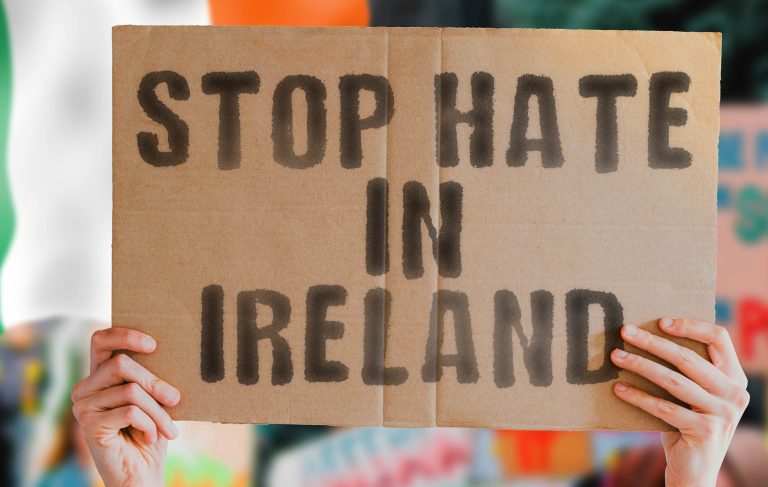Ireland’s national parliament has taken action against a recent increase in hate crimes by passing The Criminal Justice (Hate Offenses) Act.
The newest legislation combating hate crimes was passed in 78-52 vote in late October. Once enforced it will add stricter penalties for crimes motivated by hatred based on race, color, nationality, religion, national or ethnic origin, descent, disability, gender, sex characteristics, and sexual orientation, according to The Washington Blade.
Up until passing the act, Ireland remained an outlier across the globe in lacking hate crime legislation. However, the law faced difficulty in passing through Ireland’s government, facing backlash in an early stage for including provision to expand the country’s laws banning hate speech based on gender identity. This provision would expand upon an already established hate speech bill passed in 1989 which criminalized hate crimes based on gender identity.
To pass the bill, the bill was stripped of these provisions. “Making the decision to remove the incitement to violence or hatred provisions was a difficult one; but it was necessary to move forward to put the hate crime provisions into law,” said Justice Minister Helen McEntee in a statement. “The message this sends is clear– hatred and violence towards others because of who they are will not be tolerated, and now the law will reflect this.”
The new bill will increase prison sentences for certain crimes proven to be motivated by hate, or in crimes where hate is demonstrated. According to Ireland’s Law Society Gazette, this means crimes like assault aggravated by hatred, or damage to property aggravated by hatred will render high prison sentences.
LGBTQ+ activists across Ireland have had varied reactions to the new bill, urging Irish lawmakers that more protections are necessary “particularly in the context of modern online communications,” said McEntee.
“LGBT+ and other communities deserve protection and we welcome the imminent passage into law of this long overdue legislation. There must be consequences for targeting people for who they are,” a statement from Ireland’s National LGBT Federation (NXF) read on X.


